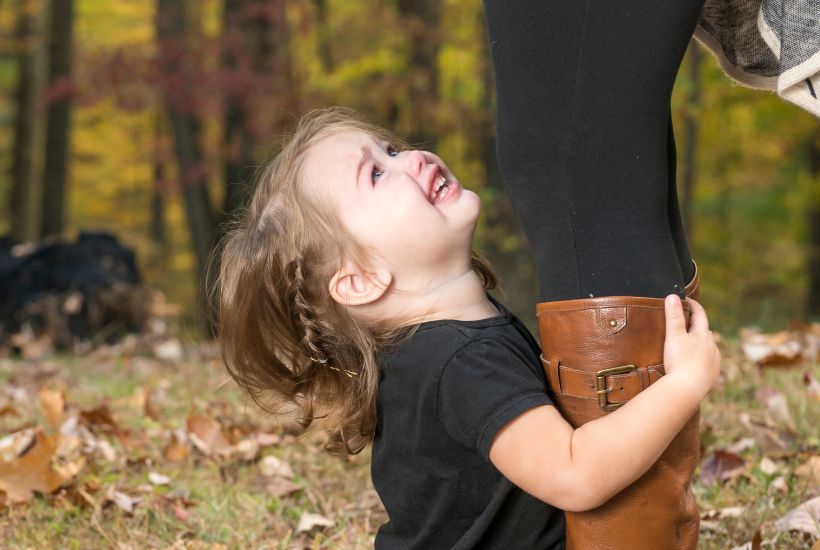Is your child acting younger than age: Causes and solutions
Do you have a child that is acting younger than their chronological age? You’re not alone.
In fact, it’s pretty common. It’s called age regression. Age regression occurs when a person reverts back to a younger age. This can happen due to stress, anxiety, or even trauma.

Two types of age regression:
There are two types of age regression:
- social-emotional age regression
- cognitive age regression
Social-emotional age regression is when a child acts younger than their chronological age in terms of emotional development.
For example, a child may have tantrums or be clingy.
Cognitive age regression is when a child acts younger than their chronological age in terms of cognitive development.
For example, a child may start bedwetting or having nightmares.
What causes age regression?
Several things can cause a child to regress.
Some of the most common temporary include:
- Hyperactivity
- Lack of Sleep
- Trouble with focus
- New sibling
- Stress
- Anxiety
- Trauma
- Change in routine or environment
- Illness or injury
Some of the issues that can cause a difference in the chronological age vs. the developmental age and result in regression are:
- Trauma
- Neglect
- Feeling of abandonment
- Developmental disability
- Drug or Alcohol Addiction in parents
- Divorce
- Illness in parents
- Loss of a family member
Age regression can be normal, but it can also signify an underlying issue.
Questions to ask as a parent :
- What is the child’s chronological age?
- What is the child’s developmental age?
- How long has the child been displaying signs of regression?
- Is my child’s behavior impacting their ability to function in school or at home?
- Is there an underlying cause for the regression?
- What resources are available to help the child?
The gap between social/emotional development and cognitive development.
This means that a child’s emotional development might not match their cognitive development.
Some things that can cause this are trauma, neglect, and feeling of abandonment.
A child’s behavior might start to change if they have problems in one of these areas.
For example, a child who is neglected might start to act out. A child who has experienced trauma might begin to have nightmares or wet the bed.
It’s important to remember that this is normal behavior for a child in this situation. The child is not “acting out” or “being bad.”
The child is trying to cope with their situation in the best way they know-how.
As a parent, you can help by being understanding and providing support.
You can also seek resources to help the child if you feel like they are struggling.
Remember that at this time, your child needs you more than ever.

What can a child acting younger than age (Age regression) look like?
There are several things that a child who is acting younger than their chronological age might do.
Some of the most common things are:
- Baby Talk
- Whining
- Being mute
- pretending not to understand
- Tantrums
- Clingy behavior
- Bedwetting
- Nightmares
- Acting out
These are all normal behaviors for a child experiencing stress or anxiety.

What is normal?
Usually, children up to the age of 4 or five will occasionally regress when under stress.
It is not until after the age of five that regression becomes a cause for concern.
When to be concerned?
If your child is regressing more than usual or their behavior impacts their ability to function in school or at home, it might be time to seek help from a professional.
A professional can help you figure out if there is an underlying cause for the regression and what resources are available to help your child.
Behaviors of age regression that are concerning
If your child is engaging in any of the following behaviors, it might be time to seek help from a professional:
- Self-harm
- Harming others
- Not eating or drinking
- Delayed speech
- Sleeping all the time
- Cutting off friends or activities they used to enjoy
- Losing skills, they have already learned
These are all red flags that something might be going on with your child.
It’s important to seek help from a professional if you see any of these behaviors.
A professional can help you figure out what is causing the regression and how to best help your child.
How to help a child who is acting younger than their age?
Emotion regulation
It is important to help a child learn how to control their emotions. When a child can do this, it can help them feel better and function better in school and home. There are several things that a child can do to help regulate their emotions. Some of these things are:
- Talking about how they feel
- Drawing or writing about their feelings
- Listening to music
- Staying active
Executive functioning skills
Executive functioning skills are the ability to plan, organize, and complete tasks.
These skills can be helpful for a child who is acting younger than their age.
Some of the things that can help a child improve their executive functioning skills are:
- Making a list of things to do
- Breaking down tasks into smaller steps
- Using a calendar or planner
- Asking for help when needed
Self-awareness
Self-awareness is important for a child because it helps them understand their feelings and how they are different from other people. It also helps them plan and complete tasks.
Some things can help a child improve their self-awareness, such as;
- Encourage your child to talk about their feelings.
- Help them understand how they are different from other people.
- Ask them questions about what they like and don’t like.
- Give them opportunities to try new things.
- Let them know that it’s okay to make mistakes.
- Help them understand that they can’t always be perfect.
Be realistic about what your child can do.
It is important to be realistic about what your child can do. If you expect them to do things that are too hard, they might get frustrated and give up.
It is also important to remember that every child develops at their own pace. So don’t compare your child to other children.
Every child is different and will develop at their own pace. Some children might need a little extra help to reach their full potential.
Keep the conversation open.
It is important to keep the conversation open with your child. This will help them feel comfortable talking to you about their feelings and what is going on in their life.
Children need to know that they can talk to their parents about anything. Because that will make them feel comfortable talking to them about anything else that might be going on in their lives.
That way, a parent can provide the child with the support they need.

Do’s and Don’ts:
Do’s:
- provide support and encouragement
- keep the communication open
- be patient
- say things like “I’m here for you.”
- Listen to your child
- Ask them questions about their day
- Don’t judge them
- Allow for mistakes
- Make time to talk to them every day
Dont’s:
- give up on your child
- try to do everything yourself
- get angry at your child
- blame yourself for your child’s behavior.
- tell them to “snap out of it.”
- say things like “stop acting like a child.”
- ignore their feelings
- act like everything is fine when it’s not
- compare your child to other children
- expect them to be perfect
- judge them harshly for their mistakes.
It is essential to be patient with your child. They are still learning and growing. They might not always make the best choices, but they will learn from their mistakes.
It is also important to be patient with yourself.
Conclusion
If your child is acting younger than their age, don’t panic. It is normal for children to regress when they are under stress. However, if you are concerned about your child’s behavior, talk to their doctor.
There are things that you can do to help your child. You can provide support and encouragement. You can also keep the communication open with your child. And you can be patient with them as they learn and grow.
Remember that you are not alone and that everything will be okay.
Thanks for reading =)







